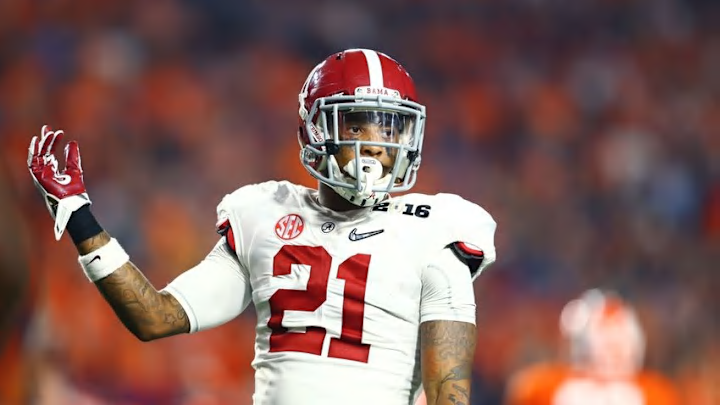SEC Waiver for Maurice Smith proof transfer rules are unnecessary

The SEC has granted Maurice Smith a conditional waiver, allowing him to enroll and play immediately at Georgia. This is further proof that transfer rules need a complete overhaul.
Maurice Smith just wanted to do what was best for his future and his education. He wanted to leave the University of Alabama to attend the University of Georgia so he could pursue his graduate degree in public health.
And he wanted to play football with his remaining year of eligibility.
SEC rules state that a player must have two years of eligibility remaining and that he not transfer within conference. Alabama attempted to uphold this rule, but Nick Saban eventually gave his blessing and turned it over to the SEC and Greg Sankey to make a decision.
Sankey’s original statement on the rule, via DawgNation.com:
"Our SEC institutions adopted the intra-conference transfer rule in 2000 due to concerns that the transfer of current student-athletes within the conference would be viewed as unhealthy for student-athletes, the institutions and the conference alike, so this waiver is not granted lightly. The University of Alabama vigorously defended this SEC rule for good reason and has assisted this process in every way.The current rule places our coaches and administrators in untenable situations so it is time for us to address graduate transfer rules. An individual university does not possess the authority to activate that change, so adherence to these rules and the process by which exceptions are sought remain critical for every institution in the SEC."
So essentially, what Sankey said there is that Nick Saban was well within his rights to attempt “blocking” Smith from transferring to Georgia.
(Not that Saban would ever do anything for selfish, competition-based reasons…or trash a player’s belongings from their locker. That would never happen.)
More from College Football News
- Michigan State vs. Maryland: Location, time, prediction, and more
- Ranking college football’s top 10 quarterbacks after Week 3
- Things are going to get much darker for the Houston Cougars
- Biggest winners and losers from College Football Week 3
- #10 Alabama football: 3 takeaways from close road win against USF
But with Saban buckling under pressure, and the SEC facing some staunch public outcry, the situation has a happy ending.
The waiver given to Smith is a provisional one, stating that he must meet all academic requirements to be eligible through the postseason, and he must complete his degree within two years for Georgia to retain the ability to request similar waivers in the future.
Smith is a good player – not a great one – but versatile and worthy of a spot on a Division 1 team. He may or may not earn a starting spot for Georgia this year (he didn’t start for Alabama last season) and the chances that he’ll have an NFL career as a player are probably slim.
He graduated with his bachelors degree from Alabama in three years, and is vigorously pursuing a graduate degree.
Isn’t this what we mean by the term “student-athlete”? Why should Smith be penalized with potentially losing financial aid and the eligibility to play for simply being a model student and the epitome of what we wish more players would become?
This is further proof that transfer guidelines – not only in the SEC, but nationwide – need to be addressed and changed to be more fair and beneficial to the students, competition on the field be damned.
Limiting when, where and how any student-athlete can transfer and play goes against everything the NCAA and it’s member institutions are supposed to stand for, and it’s time those limits were removed.
RELATED: Georgia ILB Tim Kimbrough Explains Leaving Program
If coaches can leave at the drop of a hat to pursue “better opportunities” (translation – more money) without having to sit out a year of coaching, then players should be given that same courtesy.
Players opt to transfer for any number of reasons – following a coach with whom they have a personal relationship, family concerns, academic reasons, or even simply deciding they made the wrong choice – and outside of being dismissed from a program for certain crimes or behavior, none of those reasons should ever result in penalizing the students, monetarily or in eligibility.
Next: 50 Best CFB Players for 2016
SEC commissioner Greg Sankey has opened the door for some meaningful discussion by granting this waiver, and stating that it’s “time for us to address graduate transfer rules”. Hopefully the SEC will lead the way to other conferences and eventually the NCAA realizing the short-sightedness of their draconian edicts.